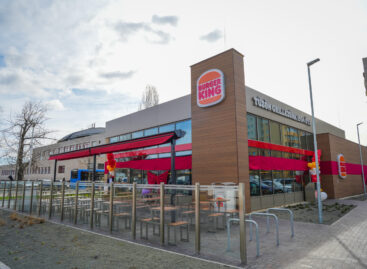Half of the domestic enterprises declare themselves to be energy conscious
Half of Hungarian businesses consider themselves energy-conscious, two-thirds prepare an internal report on energy consumption, but only 14 percent have a sustainability action plan – according to the latest research by the Makronóm Institute, which examined the effects of the global energy crisis on Hungarian companies.

(Photo: Pixabay)
According to the statement sent to MTI on Monday, 43 percent of the businesses surveyed are severely affected by the energy crisis. The price of gas has increased by at least three times in about half of the surveyed companies, and a similar increase was also reported in the case of the price of electricity. Typically, businesses would struggle with rising energy prices by cutting operating costs and implementing energy efficiency investments, they do not think about layoffs or the final termination of their activities. Based on the results of the survey, almost half of the enterprises have gas and electricity contracts for a period of at least 1 year, typically with fixed prices. For gas, 45 percent of businesses have at least a 1-year contract, while for electricity, 57 percent have at least a 1-year contract, most of them at a fixed price. Companies that did not sign new ones due to the validity of their existing contracts are expected to face increased energy prices in the coming months. Accordingly, the support program for Hungarian micro, small and medium-sized enterprises operating in energy-intensive sectors may play a prominent role in the coming year as well – they wrote. Due to the significant volume of energy investments that have already been completed or are planned – including solar panel and heat pump installations – an improvement in energy efficiency is expected for businesses in the next period, which can further reduce the demand for gas and electricity consumption.
According to the research, solar energy is the primary source of renewable energy for businesses
53 percent of those participating in the survey have a renewable energy source, which typically means solar energy, but at the same time, more than half of the businesses that use renewable energy can only provide less than 25 percent of their total energy consumption in this way. Among the already completed energy efficiency investments of businesses, the most popular were the use of energy-saving light bulbs, the purchase of energy-efficient equipment, insulation and the installation of a solar panel system. The value of already completed investments of this type exceeded HUF 10 million per company, but typically did not reach a fifth of the annual investment expenditure of the given company. In addition to self-funded investments, businesses mainly count on non-reimbursable funds in the field of energy investments, while they are much more skeptical about the availability of subsidized loans and the favorable development of interest rates – only 13 percent indicated this potential source of financing – explained the Makronom Institute.
MTI
Related news
40 secure jobs, sustainable solutions – new BURGER KING® in Csepel
🎧 Hallgasd a cikket: Lejátszás Szünet Folytatás Leállítás Nyelv: Auto…
Read more >Carrefour and Coca-Cola are focusing on refillable glass bottles
🎧 Hallgasd a cikket: Lejátszás Szünet Folytatás Leállítás Nyelv: Auto…
Read more >Fashion, drones and sustainability – the new face of agriculture at the AgriTech InnoExpo event
🎧 Hallgasd a cikket: Lejátszás Szünet Folytatás Leállítás Nyelv: Auto…
Read more >Related news
Focus on the domestic fishing sector at SIRHA Budapest
🎧 Hallgasd a cikket: Lejátszás Szünet Folytatás Leállítás Nyelv: Auto…
Read more >






